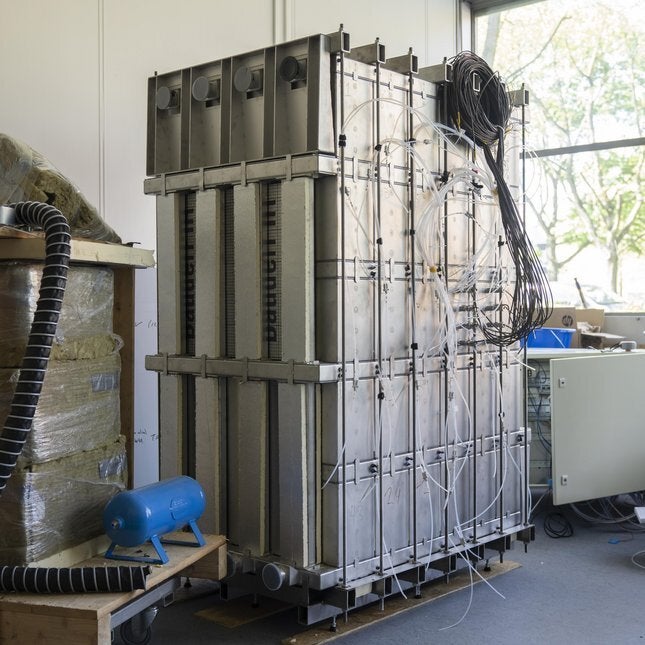‘Heat battery’ invention could make millions of homes gas-free
Pilot tests of ‘game-changing’ salt batteries are set to take place in homes in France, Poland and the Netherlands this year
Your support helps us to tell the story
From reproductive rights to climate change to Big Tech, The Independent is on the ground when the story is developing. Whether it's investigating the financials of Elon Musk's pro-Trump PAC or producing our latest documentary, 'The A Word', which shines a light on the American women fighting for reproductive rights, we know how important it is to parse out the facts from the messaging.
At such a critical moment in US history, we need reporters on the ground. Your donation allows us to keep sending journalists to speak to both sides of the story.
The Independent is trusted by Americans across the entire political spectrum. And unlike many other quality news outlets, we choose not to lock Americans out of our reporting and analysis with paywalls. We believe quality journalism should be available to everyone, paid for by those who can afford it.
Your support makes all the difference.Researchers believe they can make millions of homes in Europe gas-free in the near future, after inventing a “heat battery” based on salt and water.
The team from Eindhoven University of Technology say their cheap, compact battery system is ready for real-world tests and will be a “game-changer for energy transition”.
The heat battery is based on an old thermochemical principle, which is that when water is added to salt it produces heat. The reverse is also possible, whereby heat can be used to evaporate the water, thus storing the heat energy inside the salt.
Storing heat within dry salt makes the battery completely loss-free, providing an incredibly efficient way to store energy for future use. This is particularly useful when energy supply is coming from renewable sources, such as wind and solar, which tend to fluctuate significantly and therefore require gas or other sources to suplement them.
It took 12 years to develop and create a battery design that could actually work at scale, with researchers saying it comes at a critical time with European countries looking to wean themselves off Russian gas following the invasion of Ukraine.
The heat source to store in the salt can be taken from industrial by-products, such as the residual “heat waste” in factories or surplus heat from data centers.
“If industrial residual heat could be used to heat homes, you have a win-win situation: homes could be made independent of gas – an even more urgent need given the dependence on Russian gas – and CO2 emissions would be reduced,” Eindhoven University of Technology said in a statement.
The system is made up of a heat exchanger, fan, evaporator/ condenser and a boiler with salt particles. Despite its simplicity, the proof-of-concept was capable of providing heating for an average family of four for two days.
Engineers have since upgraded this to a fully working protoype, around the size of a large cabinet, that could be used in the real world. With nearly 30 times the storage capacity, the system could heat a home for up to two months.

“It is not yet a product, but everything is now ready to be tested for the first time in a real-world situation,” said Olaf Adan, a professor at Eindhoven University of Technology.
“While the potential is great, we have also seen many great potential technologies that have not made it. So we’re going to keep our feet on the ground and take this one step at a time.”
A pilot is already being set up to test the technology later this year in homes in France, Poland and the Netherlands.
If successful, Professor Adan claims it could be used to wean millions of homes off gas in the near future.
“In the Netherlands we have about 150 PetaJoule [a number with 15 zeros] of residual heat from industry per year,” he said.
“That would enable you to take almost 3.5 million homes off the gas, which is more than twice the target of the Dutch government, namely 1.5 million homes gas-free by 2030.”


Join our commenting forum
Join thought-provoking conversations, follow other Independent readers and see their replies
Comments